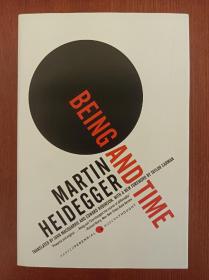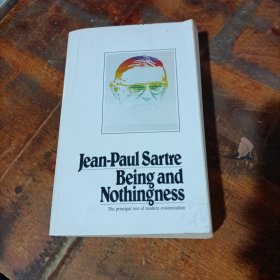
现货Being and Reason: An Essay on Spinoza's Metaphysics[9780198834151]
¥ 461 九五品
库存2件
作者Lin, Martin
出版社Oxford University Press, USA
ISBN9780198834151
出版时间2019-08
装帧精装
纸张其他
页数224页
正文语种英语
上书时间2023-04-14
- 最新上架
商品详情
- 品相描述:九五品
- 商品描述
- In Being and Reason, Martin Lin offers a new interpretation of Spinoza's core metaphysical doctrines with attention to how and why, in Spinoza, metaphysical notions are entangled with cognitive, logical, and epistemic ones. For example, according to Spinoza, a substance is that which can be conceived through itself and a mode is that which is conceived through another. Thus, metaphysical notions, substance and mode, are defined through a notion that is either cognitive or logical, being conceived through. What are we to make of the intimate connections that Spinoza sees between metaphysical, cognitive, logical, and epistemic notions? Or between being and reason? Lin argues against idealist readings according to which the metaphysical is reducible to or grounded in something epistemic, logical, or psychological. He maintains that Spinoza sees the order of being and the order of reason as two independent structures that mirror one another. In the course of making this argument,
相关推荐
-

DVD SAN AND REAS
七品惠州
¥ 25.00
-

SAN AND REAS DVD
八品运城
¥ 15.00
-
![现货Being and Motion[9780190908904]](https://www0.kfzimg.com/sw/kfz-cos/kfzimg/17733071/82cc858780a5d146_s.jpg)
现货Being and Motion[9780190908904]
九五品上海
¥ 656.00
-
![现货Thinking and Being[9780674967892]](https://www0.kfzimg.com/sw/kfz-cos/kfzimg/17733071/fe73847c4fb364be_s.jpg)
现货Thinking and Being[9780674967892]
九五品上海
¥ 363.00
-

Being and Time(现货,实拍书影)
九五品上海
¥ 175.00
-

Being and Time英文原版现货
九品广州
¥ 138.85
-

Being And Nothingness(现货,实拍书影)
九五品上海
¥ 385.00
-

《存在与时间》 Being and Time 现货
九品武汉
¥ 500.00
-

Being and Time
九品北京
¥ 120.00
-

Being and Nothingness
八品成都
¥ 158.90
— 没有更多了 —
![现货Being and Reason: An Essay on Spinoza's Metaphysics[9780198834151]](https://www0.kfzimg.com/sw/kfz-cos/kfzimg/17733071/07ecddde0a9429b0_b.jpg)

![现货Materials and Technologies of Modern Production[9783036401683]](https://www0.kfzimg.com/sw/kfz-cos/kfzimg/17733071/5fd2824531e165d7_s.jpg)
![现货Introduction to Container Ship Operations and Onboard Safety[9781032155425]](https://www0.kfzimg.com/sw/kfz-cos/kfzimg/17733071/58b7ff43ef7909ee_s.jpg)
![现货Electrophosphorescent Materials and Devices[9789814877343]](https://www0.kfzimg.com/sw/kfz-cos/kfzimg/17733071/18cc1d77bcb7b488_s.jpg)
![现货Organic Semiconductors for Optoelectronics[9781119146100]](https://www0.kfzimg.com/sw/kfz-cos/kfzimg/17733071/24c85a750c708964_s.jpg)
![现货Advances in Food Rheology and Its Applications[9780081004319]](https://www0.kfzimg.com/sw/kfz-cos/kfzimg/17733071/e0c11603c9119d4d_s.jpg)
![现货Advanced Materials and Sustainable Technologies[9783035727562]](https://www0.kfzimg.com/sw/kfz-cos/kfzimg/17733071/dced675333874c48_s.jpg)
![现货Advanced Materials and Manufacturing Engineering II[9783035712681]](https://www0.kfzimg.com/sw/kfz-cos/kfzimg/17733071/660ccfae75fa8d3e_s.jpg)
![现货Materials in Machinery and Construction[9783035718119]](https://www0.kfzimg.com/sw/kfz-cos/kfzimg/17733071/6f402060775e9daa_s.jpg)
![现货Cereal Grain Quality (Softcover Reprint of the Original 1st 1996)[9789401071772]](https://www0.kfzimg.com/sw/kfz-cos/kfzimg/17733071/f93ca1c96a97403a_s.jpg)
![现货Being and Reason: An Essay on Spinoza's Metaphysics[9780198834151]](/dist/img/error.jpg)

以下为对购买帮助不大的评价